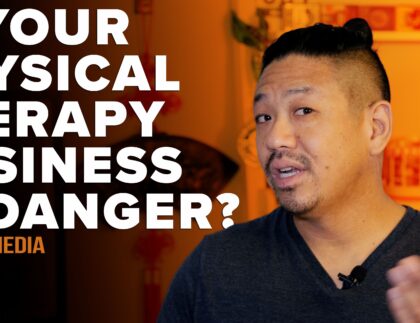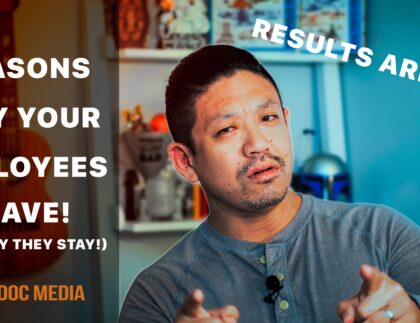
Hey all!
Here are 7 of the most important things I have learned in my first 3 weeks of clinical! Why 7 you ask? Well, there is more, but 7 is my favorite number and there is an entire day of free yoga 600 feet away from my hotel, so 7 it is.
1) Do not be afraid to ask questions and sound slightly stupid. This is huge. You’re not expected to know everything, regardless of what your perfectionist-devil brain tells you.
2) If you’re nervous about doing something (and it will cause no harm if you do it wrong), DO IT. The only way you learn is by stepping outside of your comfort zone! For instance, this past week I did 2 low back evals and next week I have my eyes set on conducting a c-spine eval, even though the thought scares the bejesus out of me. I also did a pool therapy eval this week and observed 2 surgeries (as y’all know..and if you don’t, read my post!).
3) SAY YES TO EVERY SINGLE OPPORTUNITY YOU ARE OFFERED. If I had not instantly said yes to the question of if I wanted to observe surgeries, if I had hesitated for a single minute because I was scared about seeing people’s insides, I may not have observed them. I also got to go to the surgical team meeting with all the attendings on Friday because I jumped on that opportunity right away. I learned so much about how the surgeons think and got to review imaging, upcoming cases, and patients who we are seeing post-op with them. OH, and when the patient who’s ACL reconstruction I observed came up for rehab discussion, I was offered the opportunity to see him for his post-op visit at the hospital before he goes to another PT clinic. Have I ever done a post-op ACL visit? Nope. Am I slightly nervous? Yes. Am I going to study the surgeons protocol so I know what I can do and work with my CI so I don’t totally mess up? You bet I will. But I would’ve never gotten the opportunity, let alone the direct offer, to see him post-op if I had not hopped on that surgical team meeting right away.
4) Remember the little things about patients you see so you can create a conversation about a hobby they have, their job, or their pets. This will help build a rapport with your patients and they will enjoy PT and do better in their rehab because of it! I like to try to remember one thing about a patient so I can ask them about it next time I see them. I do a lot of manual therapy at this clinic, so there’s some time for conversation during a session (yay PROM), and remembering little things makes that conversation much easier and allows you an opportunity to show your patient that you value them as an individual. I honestly did not think I would ever forget things that a patient and I spoke about, but you do when you see so many people! The way I have combatted this is to remember one thing, like I mentioned before, and make a mental note of it. You could also make a little statement in their note about how they mentioned ______ (fill in the blank), and then you have something to look back on before their next visit. Making the patient feel heard and remembered is the bottom line, so just do what you gotta do, without violating any aspect of HIPAA obviously.
5) Ask the other PTs at the clinic about things that they do! There have been many times where I’ve noticed another PT (who is not my CI) do something during one of their treatment sessions or have overheard something they have said in the office and have asked about it. I have gotten phenomenal answers every single time and have learned some stuff that I would not have otherwise. A few PTs in my clinic are specialized in certain areas like neuro, ortho, manual therapy, pool therapy, and pelvic floor. Some have taken advanced courses in different movement screenings, one PT has done a residency, and a few participate in hospital programs for special populations like patients with a SCI or MS. Even ask other professionals in your clinic if it is more than PT! Maybe you have a question about something you saw an OT, SLP, or chiropractor do, so just bring it up (when the time is appropriate obviously), because you are there to learn! Each PT at the clinic, the OTs, and the chiropractor have taught me something so far, and it’s information I would not have known, and knowledge I may not have received if I did not ask! As a student intern, you are like a big sponge and the more water (aka knowledge) you absorb, the bigger you will grow as a clinician and the more you will get out of your rotation.
6) You will learn SO much and time will absolutely fly. This is where you build your base as a clinician. The school stuff helps, yeah, but this is where you really grow. Enjoy it, savor every second, and be grateful as all hell that you have been given an amazing opportunity to be taught by successful clinicians and that they are willing to spend time and energy to help make you into a successful clinician yourself.
7) Take care of yourself! Don’t burn yourself out, don’t work through lunch, and don’t stay up watching Netflix and then go into the clinic on 2 hours of sleep. Do yoga, eat chocolate (my favorite), meditate, take walks, workout, etc. Find whatever works for you and do it on a regular basis, not when shit has already hit the fan. I’ve said it before and I’ll say it again; you can’t pour from an empty cup, you can’t cut wood with a dull saw, and you can’t be the best you can be if you don’t take a little time for yourself! Treat yo’ self, y’all.
 Caitlyn Crandall, B.S., SPT, is a third-year Doctor of Physical Therapy Student at Sage Graduate School in Troy, NY. She graduated Magna Cum Laude from Russell Sage College in 2015 with a B.S. in Health Science and will graduate Sage Graduate School with her DPT in 2018. Her previous experience in physical therapy includes part time clinical rotations in outpatient orthopedics, long term care, ICU, pulmonary rehab, and cardiac rehab. She is currently doing her first clinical rotation at a hospital-based outpatient clinic. Her capstone research was on VO2max testing in adult runners and is expected to be published later this year. Her physical therapy interests include acute care, pediatrics, neurological PT, yoga therapy, and hippotherapy. To connect with Caitlyn, please visit her blog SPT Intern Life and her Linked In profile.
Caitlyn Crandall, B.S., SPT, is a third-year Doctor of Physical Therapy Student at Sage Graduate School in Troy, NY. She graduated Magna Cum Laude from Russell Sage College in 2015 with a B.S. in Health Science and will graduate Sage Graduate School with her DPT in 2018. Her previous experience in physical therapy includes part time clinical rotations in outpatient orthopedics, long term care, ICU, pulmonary rehab, and cardiac rehab. She is currently doing her first clinical rotation at a hospital-based outpatient clinic. Her capstone research was on VO2max testing in adult runners and is expected to be published later this year. Her physical therapy interests include acute care, pediatrics, neurological PT, yoga therapy, and hippotherapy. To connect with Caitlyn, please visit her blog SPT Intern Life and her Linked In profile.








